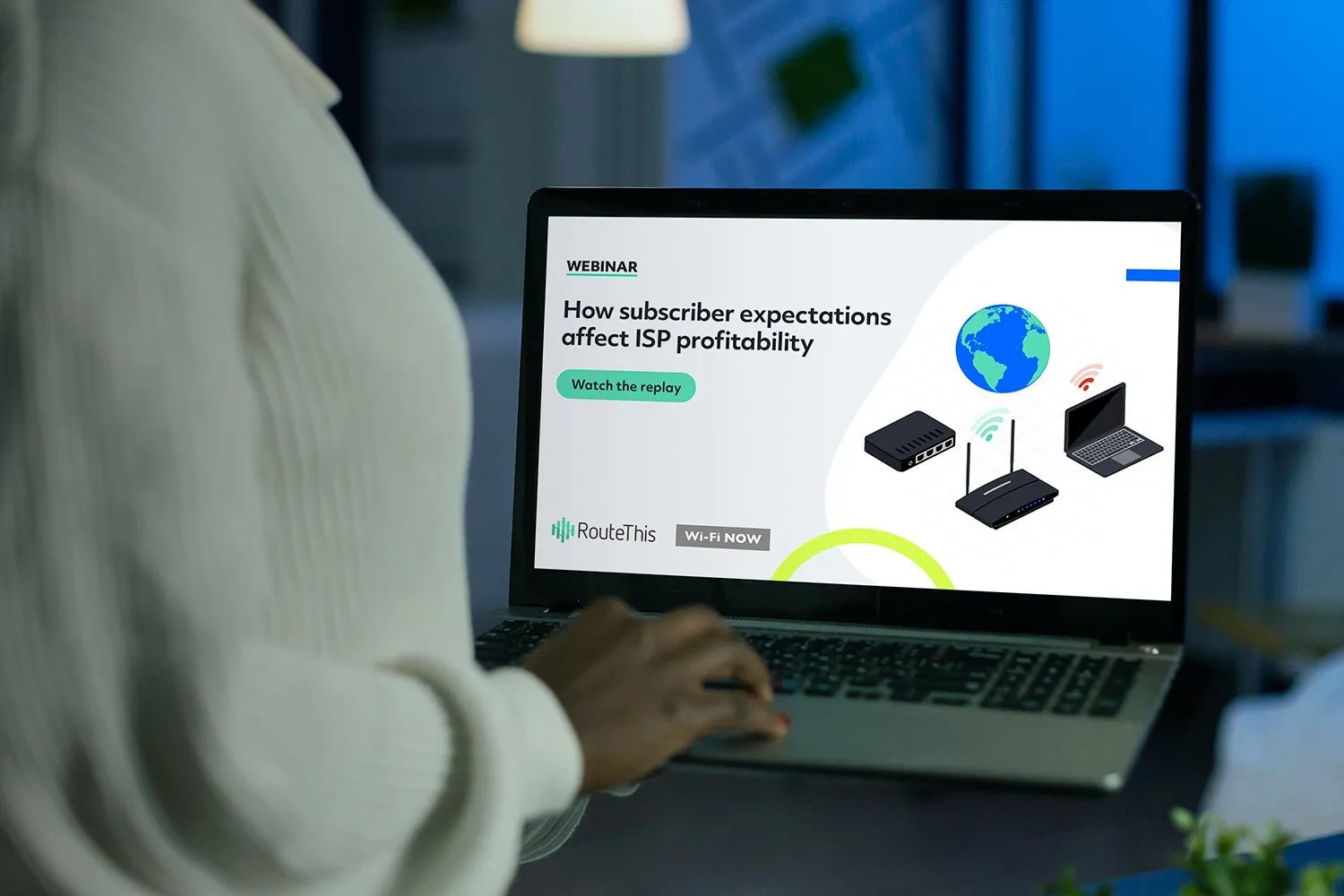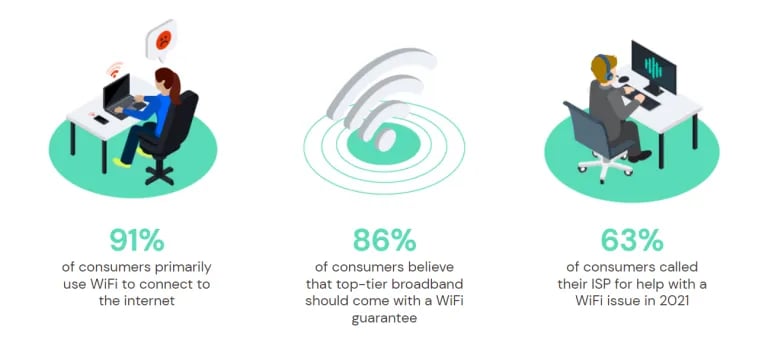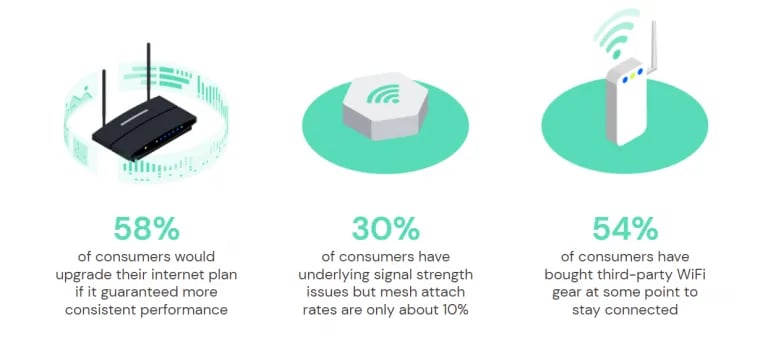Event recap: Uncovering how subscriber expectations impact profitability

Earlier this week, we held an exclusive online event with Wi-Fi NOW to uncover the correlation between subscriber expectations and ISP profitability. The panel of experts, featuring Andrea Atkinson of Execulink Telecom, Martin Wren-Hilton of TalkTalk, and RouteThis CEO Jason Moore, discussed why subscriber expectations are what they are today—and what these expectations mean in terms of an ISP’s ability to improve profitability through their support center.
In case you missed the event and would like to catch up, you can also watch the full recording here.
Key takeaways:
- Changing expectations mean ISPs need a new approach
- ISPs face high costs if they can’t meet these expectations
- There’s a massive opportunity to profit through supporting WiFi
What do subscribers expect from ISPs?
The conversation got down to business early in this week’s event, with Wren-Hilton joking that he should have said that TalkTalk sells WiFi, not broadband, in his introduction. Though the comment was met with laughs from the panel, it brings up a point that’s very close to home for ISPs:
Subscribers think WiFi is the same thing as their internet.

Of course, this isn’t news for many ISPs. But it does set the stage for what is a very difficult conversation at times: What ISPs can be doing to properly support subscribers in terms of their WiFi networks.
What expectations mean financially for ISPs
As part of the presentation, Moore explored the myriad costs that ISPs experience when they’re unable to deliver effective WiFi experiences for subscribers. These costs, which range from the dollar amounts of WiFi support calls and technician visits ($57 and up to $100 respectively) to the potential churn rates associated with WiFi support (49%), become limiters on how much an ISP can bring in—which of course is a major issue for profitability.
However, as Moore explained, WiFi support also presents interesting opportunities for going beyond reducing costs: It provides support teams with areas where they can actively increase overall revenue.

